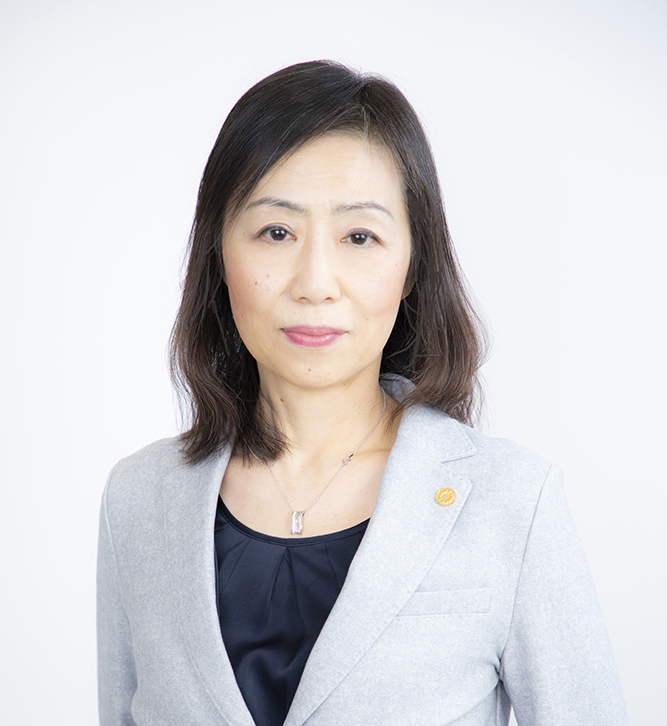Second Career, Incorporation & Retirement
As an individual professional like me, I often receive consultations from clients and friends outside of business such as “Should I go independent or stay in a company?”, “Which is better, being a sole proprietor or starting a company?”, and “What should I do after the retirement?”. In this blog, I would like to write based on my experience helping clients and my own experiences. However, this blog is written only from my experience and subjective opinion, so I recommend not to trust it too much, and I want to declare in advance that I cannot be responsible even if you trust it, put it into practice and it doesn’t work out well .
1. Mainly for foreigners living overseas
When I work on company establishment and residence application, I get consultations from foreigners like “I want to start a company thinking about retirement soon” and “What should I do to maintain my life in Japan after retirement”. Most of the people who come to me for advice are in their 40s and 50s. On the other hand, most Japanese people’s retirement age are 60 , and after retirement they can stay at the same company as a contract employees until 65, so Japanese people start thinking about complete retirement when they become close to 60. In comparison, foreigners are thinking about retirement more than 10 years earlier. Also, when I heard from a Korean client that large Korean companies encourage people to quit when they are around 50 years old, by offering to give them a large severance pay, in order to get them to quit earlier. By doing so, they are trying to recruit young people. I don’t know how much the severance pay of those large companies is, nor I know where the annual income of the people who consult me is in their home countries, but even in general terms, I truly feel that Japan and the Japanese have become poorer compared to other countries. While most Japanese people of the same age are strapped for cash due to mortgages and their children’s education expenses, foreigners are often able to easily come up with the funds, or have secured the sources of funding, to buy a house in Japan or set up a company (a minimum of 5 million yen is required per person to obtain business management qualifications) .
I assume the reasons why foreigners prefer to live in Japan are Japan is safe because it is not a gun society, and the society is relatively generous of foreigners, but another reason may be Japan has universal health insurance. If you are allowed to stay in Japan for more than six months, you can join the health insurance, and if you have paid into the national pension for 10 years and become 65 years old, you will be eligible to receive benefits. However, what foreigners should be aware of here is that even if you want your parents in your home country to receive medical treatment in Japan, they cannot enroll the national health insurance if they get a three-month short-term stay or a specific activity status for medical purposes. Also, there are almost no types of residence status in Japan that allow you to bring your parents over to Japan (there are cases where you can obtain a specific activity status if your parents are over 70 years old and living alone in your home country, but this is quite rare), so if you need to care for your parents, you yourself have to return to your home country .
I frequently have received inquiries from foreigners who have seen websites introducing vacant houses and old houses created by foreigners asking, “I want to buy a cheap house in Japan and live a leisurely life after retirement, so what I need to do?” The answer is, in short, you cannot get a residence permit just by buying a house. So, 1. Get a job at a company in Japan and get a “Technical/Humanities/International” residence status, 2. Get married to a Japanese person and get a “Spouse of a Japanese National” status, 3. Start a business in Japan and get a “Business Management” status, or, 4. Get a digital nomad visa (annual income of 10 million yen or more, health insurance contract for six months required) and travel between your home country and Japan every six months. Also, if you buy a house through a real estate agency, except that you will pay in cash, you can’t buy or rent a house unless you have a bank account in Japan. There are secondary issues that make it difficult to live in Japan .

2. Second Career
As mentioned above, for Japanese people, companies must set the retirement age at 65 or above, so most companies will treat you as having retired at 60, and you can continuously work until 65 on a one-year contract . While in the banking industry, I heard you can be sent to another company earlier, there are also companies that don’t have a retirement age. But in the average, the Japanese employees start thinking about their second career around after 60 years old. Of course, if you become a contract employee, your salary will be lower and your manager position will be taken away, but if you have enough assets to retire at 65 and no need to worry about the money after that, it’s easy to accept such status only for five more years. Many of the people around me work for stock exchange listed companies, and some of them are treated as executives, so they are comfortable and relaxed after leaving the company. However, they are not the average in society, and it is common for people to have to work until they are 70-80 years old for various reasons, such as they still raise young children or the cost of caring for their parents. If I were to give advice to such people, I will say “it’s better to start preparing for your second life as early as possible” and “it’s better to have two or more sources of income to hedge against risks . “
A. It’s better to start preparing for your second life early
I think Japanese authority is a really cruel, because the middle-aged generation who have been working all their lives are dangled with the carrot of pensions and insurance having the right to obtain, and they postpone the receiving age from 60 to 65 , and furthermore, they say, ” It’s much better to receive pensions at 70 or 75 than at 65,” and they present an amount that is so small that it is impossible to live when they received at 65 , and they try to make people who are out of breath work until the very end of their lives. If the younger generation of today can receive pensions (it may happen that they will not be able to receive them at all), I think they will only be able to receive them from 75 or more years old. Although it is possible to live to be over 100 years old thanks to the development of medical technology , as we get older, our physical strength and energy will gradually decline. It is better to think about changing your career from around 40-50 years old (even if you don’t do it right away), because you have a long life in front of you, so wouldn’t it be better to get the second career you want early on so that you can enjoy your life after that ?
B. Having two or more sources of income
Whether you are working a side job while working as a salaried worker, starting a company to become the president or becoming a sole proprietor to change your career, it is better to have double sources of income, or to improve your skills so that you can have them. In case your main job may not be successful, it may be better to have another option at that time and you will concentrate your main work more. A while ago, the Secretary-General of the Liberal Democratic Party said, “We will create a society where it is okay to have a side job,” but the public criticized him, saying, “It’s your job to create a society where you can make a living just from your main job.” I think that is a fair point, but regardless of how much you can earn from your main job, it is better to have a double income. As I wrote in another blog before, I unexpectedly began working as the representative of a recruitment company adding to my legal work as Gyousei Shoshi, so I was able to maintain my legal office even when the profit from professional work fell due to COVID-19. Also, before that, I was working as a salaried worker while also working as a professional. So even I was quite unhappy at work, but my side job served as a way to relax, and I was able to sort out my feelings there. I also tell the junior gyousei shoshi or acquittances, “If you get stuck in the legal profession, you can do another job at the same time.” One of my friends is trying to quit his job as a salaryman and become independent while working two jobs. Both jobs seem to be things she wants to do, so I think she would be very happy if she could achieve that. I’m looking forward to seeing what the future holds .
3. Salaried worker , sole proprietor, or company establishment
I am sometimes consulted by people who are currently working as salaried employees, asking if they would be able to avoid paying too much taxes if they were to become independent, and if they were, would it be better to be a sole proprietor or to set up own company? In such cases, I first ask, “I don’t say it is you, but typical salaried employees get paid without doing anything, but sole proprietors and CEOs don’t get a penny unless they earn it themselves, and they are in an unstable situation where they don’t know if they will have an income next month. Are you okay with that?” People who stayed at large companies until they were close to retirement age often don’t realize that they could have worked because of the prestige of the company rather than as individuals, and even if they become independent, they often wait without doing any sales themselves, which is why their career change is not successful, so I don’t really recommend independence to such types of people .
Also, self-employed people like me can write off the money we spend as expenses, but if we try to save the money we earn, it will be taken away in taxes the following year, so we choose to spend it rather than have it taxed. Therefore, since we cannot save our sales in preparation for retirement, it seems that we will continue working for a while. Of course, when you start your own company, you may be able to retain some of your sales. On the other hand, salaried workers can save the surplus of their take-home pay because income tax and local taxes are mercilessly deducted in advance. Therefore, if you have a certain amount of income and want to save for your children’s education for example, it may be better for you to continue working as a salaried worker. Of course, if you are confident in your abilities, if you become independent and earn money, that amount will become your income. An acquaintance of mine who started a company and takes on sales for other companies on a contract basis works at his own pace and takes a good rest on the weekends to play with his children .
Apart from the tax aspect, I think it is better to be a sole proprietor or to set up a company in the case of consulting or professional services. On the other hand, in the case of manufacturing or trade business you will do, it is better to set up a company. In the case of consulting or professional services, you work based on your name and personal trust, so you don’t need to gain trust through the name of a company. In my case, if I will set up a corporation, I will have to pay double membership fees as the individual and the corporation, so currently the disadvantages outweigh the advantages. On the other hand, if you are in the real estate, manufacturing, or trade business, you may need a bank loan for working capital or capital investment before starting up your business, and if the transaction amount is large, it is better to put a large amount of capital and gain trust as a company, as this will make business go more smoothly, so I think it is better to have a company structure. I think it depends on the type of business .

4. Summary
Someone once said, “When I retire, I want to get a new license and work at my own pace.” However, when it comes to professional work, if you turn down a job, it is expected that you will never get another one , so no matter how busy you are, you basically need to complete the job that comes to you without turning it down. Also, no matter how the business become slow, you can’t hand out flyers to solicit people or advertise things like “3 months discount.” So no matter how busy you are, you have to earn an income by doing all the requests that come in for making up the slow periods. In other words, if you don’t accept 100 % of the work requested, there is a possibility that there will be 0% of the work that comes in on some days, so you have no choice but to always be able to work 100%. In my case, ending up spending the days at a pace that is far from my own pace. When setting up a drinking party, a salaryman sometimes asks me, “Please schedule a day when you are free with the coordinator,” but I don’t know when I’m busy or free until the day, so I always answer, “I don’t know my schedule, so I’ll go if I’m free,” but I guess that just makes me look cool to the salaryman …
I can give advice to others on starting a business, retiring, and incorporation matters, but I don’t think I’ll be able to decide for a while when I can or should retire myself .

 Ishibashi Legal Office
Ishibashi Legal Office